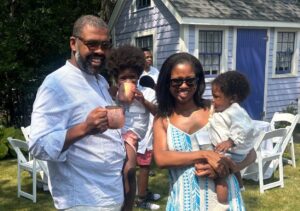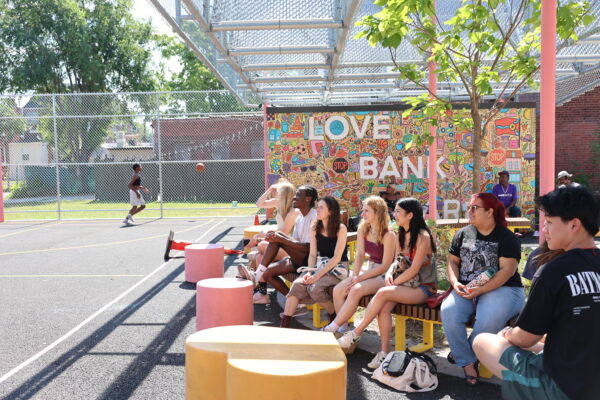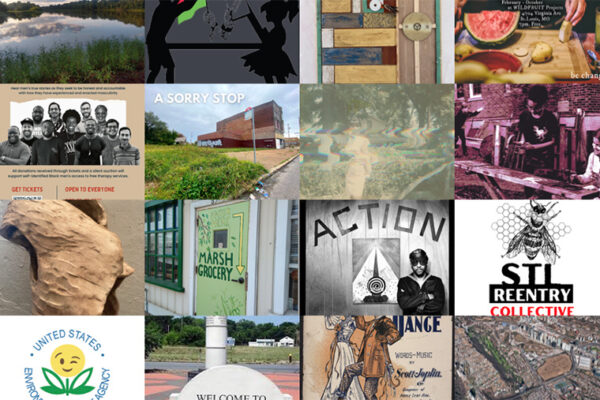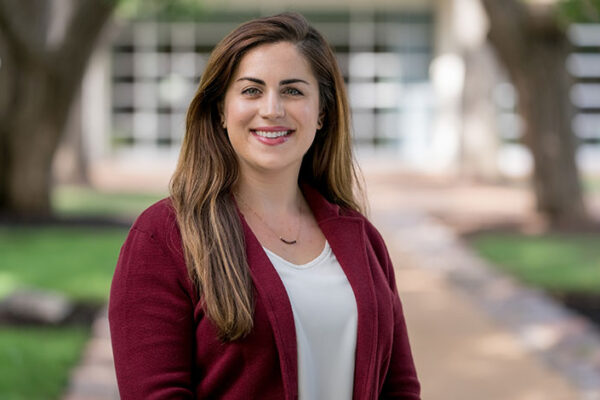Reginald “Reggie” Binford Jr., BSBA ’03, BS ’03, came to WashU knowing that he wanted to study at the intersection of finance and technology.
Having the chance to earn dual degrees from Olin Business School and the McKelvey School of Engineering, alongside a scholarship, cinched his decision to enroll. While a student, he developed a passion for entrepreneurship, fueled by his participation in courses like “The Hatchery,” in which students design and pitch startup ventures.
Binford, a Chicago native, went on to earn a master’s degree in business administration from the University of Chicago and build a career in consulting and investment banking. In 2016, he shifted gears and founded the New York-based private equity firm Proviso Capital, which focuses on acquiring, funding and providing strategic resources to lower middle-market companies. Outside the office, he is dedicated to another startup of sorts — his young family. He and his wife, Barbara, a lawyer who works in the financial technology sector, currently are raising two young children: James Wesley, age 3, and Theodore Reginald, 8 months.

Grateful for his education, Binford loyally gives back to WashU, which he credits as a springboard for his success. He and his wife are generous supporters of scholarships. As a volunteer, his impressive record of service includes participation in Olin roundtables and leadership of his WashU Reunion class committee. He also is an at-large member of the Alumni Board of Governors and the Greater New York Regional Cabinet and serves as co-chair of the New York City chapter of the Black Alumni Council (BAC). He uses his voice as an alumni leader to help ensure that all students have what they need to thrive once they arrive on campus.
What motivates you to give back?
Education was the great equalizer for me. I did not come from an affluent background. Taking that leap and going to WashU, it was a foundational piece of building a career that I’m proud of. So one of the key things that drives me is ensuring that other qualified and motivated students have the same access to a WashU education. I engage so I can use whatever social capital I have to help advance the next generation.
I’ve been a member of the Greater New York Regional Cabinet since 2019. It’s been interesting to peel back the layers of the onion and get a deeper understanding of the operations of the university. This has allowed me to see where there’s greater potential for impact.
For example, we have to make sure that students are set up for success when they get here. There are so many forms of participation outside the classroom, where a lot of meaningful social and long-term connections happen. Things like study abroad and internships. All students should be able to participate at the same level, regardless of their means.
Describe your work with the BAC.
BAC was more of a St. Louis thing when I came on board, but it has broadened in recent years with university support and great staff members like Liz Williams-Johnson, AB ’10, MSW ’17, WashU’s diverse alumni networks director. We have started BAC chapters in five major metropolitan areas, which has expanded the breadth of the organization, increased alumni engagement and furthered the inclusion and participation of diverse alumni.
“I always say: Get involved. Don’t wait. You can have a positive impact at every age and every level. Don’t think the university doesn’t need you. You’re important.”
Reginald “Reggie” Binford Jr., BSBA ’03, BS ’03
Today, our goal is to be a bridge, both personally and professionally. We want to help new alumni get rooted in their cities. The pandemic slowed some things down, but we’re happy with our achievements, including the success of our first universitywide Black Alumni Weekend in 2023, which was a big milestone in terms of reengaging large numbers of African American alumni and bringing them back to the university. BAC also has created excellent regional programming, which I hear about through my involvement with the Alumni Board of Governors and the Greater New York Regional Cabinet.
Finally, we talk with current minority students and make sure that, with our access to senior leaders at the university, we are a voice for them, and their issues are being addressed.
Why should young alumni stay engaged with their alma mater?
As a young alum, you’re in a period of your life where you probably have free time. If time is a resource you have, then you should give that. Because eventually your time will become a more precious commodity, and you may shift to giving more financially.
There’s also the professional benefit of engaging as an alum. When you volunteer your time, you are exposed to other great alums who can help you professionally and further your personal path as well.
I always say: Get involved. Don’t wait. You can have a positive impact at every age and every level. Don’t think the university doesn’t need you. You’re important. Every level of engagement matters.


